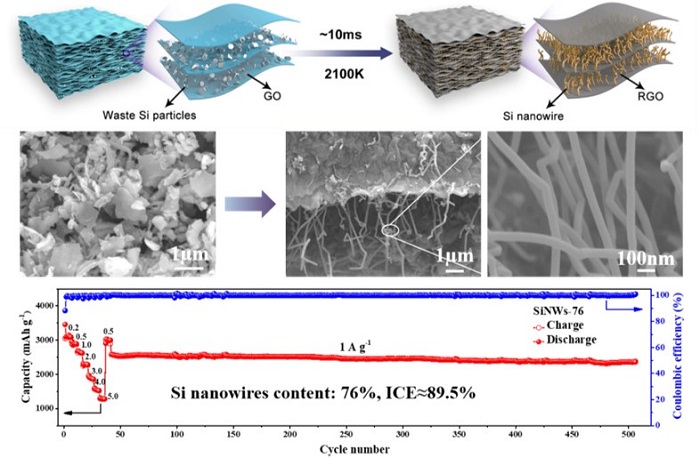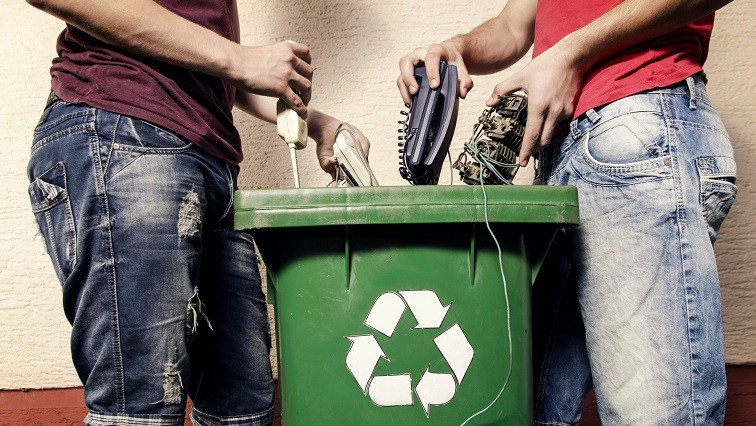Photovoltaic power generation is promising in providing clean energy. However, in the process of manufacturing silicon (Si) wafers, high-purity Si that accounts for about 40% of the total mass of Si ingots is lost during the wire sawing process, leading to waste of secondary resources and environmental pollution.
The preparation of lithium-ion battery anodes from photovoltaic Si waste can realize green, synergistic and sustainable development of photovoltaic and lithium battery industries.
Recently, Prof. WANG Zhi's group from the Institute of Process Engineering (IPE) of the Chinese Academy of Sciences developed a controllable electrothermal shock method to realize catalyst-free, one-step efficient preparation of high Si-content nanowire electrodes from photovoltaic Si waste (WSi). It provides a new idea for the efficient and low-cost preparation of Si nanowire materials for lithium-ion batteries (LIBs).
The study was published in Advanced Energy Materials on Sept. 1.

Electrothermal shock synthesis of silicon nanowires and their performance.
In the proposed method, photovoltaic WSi is converted to high energy-density and stable Si nanowires (SiNWs) electrodes for LIBs in milliseconds. The flash heating and quenching provided by an electrothermal shock drive directional diffusion of Si atoms to form SiNWs within the confined space between graphene oxide films.
When applied as a binder-free anode for LIBs, the SiNWs@RGO electrode exhibited an ultra-high initial Coulombic efficiency (89.5%) and robust cycle stability (2381.7 mAh g-1 at 1 A g-1 for more 500 cycles) at high Si content of 76%.
In recent years, Prof. WANG Zhi's group has developed a number of characteristic technologies and equipment for high-value recycling of photovoltaic Si waste, and established a demonstration project of short-range high-value recycling of 10,000-ton Si -based solid waste.
Read the original article on Chinese Academy of Sciences (CAS).


